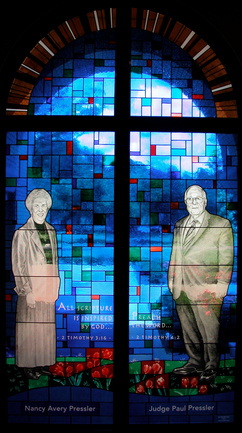I may be tempting fate here, as the topic is filled with emotional issues and hysterical responses, especially from the male contingent (That is supposed to be a little ironic humor but also a somewhat true statement) and risks going into political realms. However, the recent events in the SBC with the removal of Paige Patterson as president of Southwest Theological Seminary, has sparked a lot of good discussion, and bears on the biology and theology that we try to work on here. The story gets complicated, but you can google details of the saga. I do not want to bore you or get bogged down in denominational politics, but rather look at one blog addressing the issue for discussion, and see where it takes us.
Here is a link to the blog, brought to my attention through Scot McKnight’s meanderings:
It is a good read, top to bottom, but if you don’t want to read it all, I would like to quote Beck and focus a bit on this excerpt:
"Human beings are corrupted by power asymmetries. Based on his famous Stanford Prison Study, Philip Zimbardo has called this “the Lucifer Effect.” Psychologically, power has been shown to decrease inhibition, which means that when we have power we’re more prone to act out, sexually and/or aggressively.
Add to this the observation that psychological studies, along with criminal statistics, indicate that men are prone to aggression and violence, physical and sexual.
An irony here is that many evangelicals admit all this, that men have a natural, durable “nature” characterized by dominance and aggression, the characteristics that make men great leaders and warriors. That’s the positive spin on those traits. But the darker side of those traits are a proneness to violence and abuse.
I say this is an irony because evangelicals describe men as being “naturally” wired for dominance and aggression. And then they espouse a model of gender relations that gives power to the gender characterized by dominance and aggression. And then they express surprise that this arrangement didn’t work out so well."
Wow. What do you think? Was gender relations part of the curse of sin, and have we in the church fallen into the trap of institutionalizing it? How do we handle the very real differences in the sexes and maintain Godly respect for one another? What does that mean in our work, our politics, our churches? What other questions and observations does this bring to mind?

